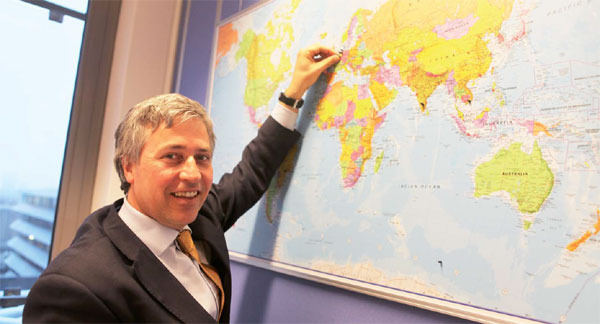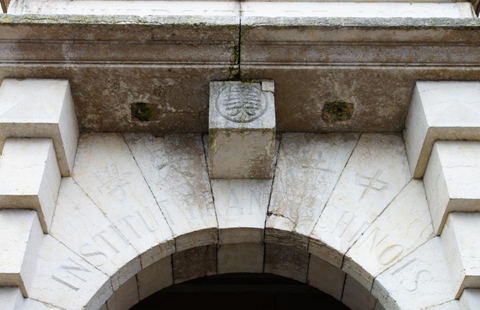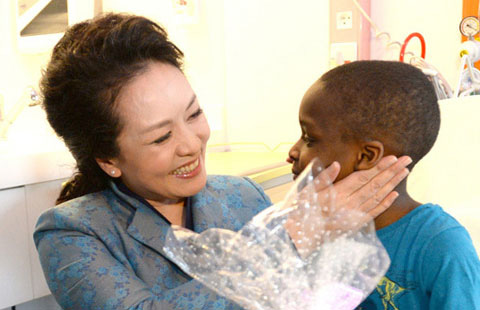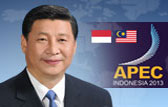
More than dikes, tulips and windmills
Updated: 2014-03-21 08:14
By Fu Jing (China Daily Europe)
Comments Print Mail Large Medium Small
|
Jan Siemons feels that the Netherlands has the best credentials among all European countries to be the gateway to Chinese investment in Europe. Fu Jing / China Daily |
Trade official vaunts prowess that he says makes his country the gateway to Europe
By choosing the Netherlands as the first stop on his West European tour, President Xi Jinping has highlighted the key role that the country has in China's economic and diplomatic moves in Europe, sources say.
Part of the reason why the Netherlands figures so prominently in China's agenda is its "welcoming attitude" toward investment, says Jan Siemons, managing director of the Netherlands Council for Trade Promotion.
Siemons, the top trade promotion official of the Netherlands government, says the red-carpet treatment for Chinese investment is in sharp contrast to his country's opposition toward Japanese investment in the 1980s.
According to Siemons, industries from the Netherlands were worried that Japanese companies would cannibalize them during their expansion, he says. "There are several other reasons also why Chinese investment is more than welcome now," says Siemons, whose organization was set up in 1946 to boost trade.
As with other European countries, the economic and debt crisis has also taken a toll on the Netherlands. "Though there is economic growth, the country still needs fresh investment and industrial expansion to add more jobs," he says.
The Netherlands also offers a lot of new investment opportunities for Chinese investors, especially in areas such as real estate.
"There are a lot of investment opportunities in the Netherlands real estate sector and we are more than happy to welcome Chinese investors."
Real estate prices in the country have fallen 20 percent in the past five years, he says. "It is an opportune time for prospective investors as the prices are bound to rebound in the long term."
In Europe, it is not uncommon to see many countries and cities calling themselves the gateway to Chinese investment. Siemons, however, feels that the Netherlands has the best credentials to make such a boast.
The country's location has been the main reason why Chinese enterprises are interested in it, he says. "It is easy for companies to expand to all the major markets in Europe from the Netherlands as it has excellent land and air connections.
"There have been a lot of experiences and exchanges with China. But the most important thing is to see how businesses are developing and how Chinese companies can use the Netherlands for further expansion in Europe."
The Netherlands is also a big market for China because over 70 percent of its population lives in the metropolitan regions (Utrecht, Amsterdam, the Hague, Rotterdam and Eindhoven). Also within the region is Amsterdam Airport Schipol, one of the busiest airports in the world, and Rotterdam Port, the largest in Europe. "These are two unique gateways that are closely connected and can be reached in less than one hour by car from Amsterdam," Siemons says.
The metropolis is also home to industries such as chemicals, logistics, business services and the food and agriculture sectors.
"At the same time, we are also different from other gateways," Siemons says.
"Belgium and the Netherlands have always been respected for their neutral political positions. We get well with the UK, Germany and France. And that has some implications when we are talking about China's investment in Europe," he says.
For example, if a Chinese business is set up in Germany and if it also wants to do business with France, it is very difficult. "The difference is in business culture, and not many can understand the finer nuances."
Apart from the huge talent pool, what makes the Netherlands an attractive proposition is "the triple helix", he says. This refers to businesses, government and universities all within close proximity of each other. "We have 64 science parks in such a small country," Siemons says.
The Netherlands has also been a long-standing trade partner of China, a partnership that has lasted for more than 400 years, he says.
Siemons says the Netherlands is the second largest investor and trader in China, after Germany, among all the EU countries. Buttressing his claims, he points to the huge Chinese community that is present in the country.
"They have been there for over 100 years and not just in Amsterdam, Rotterdam and Utrecht, but also in mid-sized towns," Siemons says.
"We are open, experienced, and very much dependent on the outside world. That is also why we have such a long trading history."
The Netherlands has been able to attract foreign direct investment from the US and Asia due to a combination of factors ranging from modern international airports and seaports to the very competitive tax system and language advantages.
For example, the Dutch people can understand languages like English, German and French and also have optional courses in the education system for learning Chinese. Apart from the UK, the Netherlands is the only country in Europe that has more than 1,500 courses taught completely in English, more than France and Germany combined. Wagningen University, which specializes in food and agriculture, offers courses in English.
"The first stock market in the world was built in Amsterdam and this is evidence of our rich trading history," he says.
However, he feels that apart from real estate, Chinese businesses should also take advantage of the science parks in the Netherlands and look for cooperation opportunities in food security and elderly care. Both sides should also focus on medical technology, clean energy and recycling technologies to further deepen cooperation, he says.
"This will be the first time that a Chinese president is visiting the Netherlands and I believe it will be a major step in bilateral ties," Siemons says. "Undoubtedly the focus of the visit is economic ties, and I am confident that there will be a surge in Chinese investment."
He says the successful example of Philips, the Dutch healthcare, lighting and consumer appliances group, which employs more than 40,000 people in China.
Politically, Siemons says, Xi's visit is a good indication and an important message that the president is not only here for the Nuclear Security Summit. "The Chinese government has recognized that we are the second-largest economic partner of China among all EU countries."
Li Xiaofei contributed to this story.
fujing@chinadaily.com.cn







